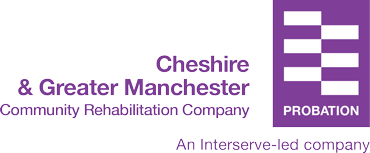Together Women’s Project a life-line

Women have praised a centre they say has given them a life-line.
The Together Women’s Project is for people sentenced to probation or on licence from prison. Crucially, it can also be attended by people at risk of offending or who are vulnerable.
Across Cheshire & Greater Manchester 81 per cent of female service users successfully complete their orders and licences, which is six per cent above national targets.
These positive results are being driven by 10 successful women’s centres across Greater Manchester. Each is supported by the Cheshire & Greater Manchester Community Rehabilitation Company (CGM CRC), Greater Manchester Women’s Alliance, the local authority, and a range of partner agencies.
The Together Women’s Project (TWP) aims to support 134 women over a 12-month period, and is well on track to accede this target. Women can access a wide range of help five-days-a-week; from anger management through to debt advice, support overcoming domestic abuse, drug misuse, unemployment and cookery – to name but a few.
Four women (pictured with staff above) spoke candidly about why they believe TWP plays a crucial role in their lives.
Amanda Fletcher is in recovery from alcohol addiction and is one of many attendees who has successfully completed a community order, but still visits for support.
She said: “Quite simply if not for this place, I think I’d have committed suicide.
“I’ve been coming here now for two years. I have a long-standing illness and suffer from anxiety, but my problems stem from drink. I’ve had bad periods where I’ve drunk from the first moment I opened my eyes until passing out.
“The TWP, the people I meet here, my friends – this is my support network. They all give me a reason to get out of the house, to stay abstinent, and keep motivated.”
Amanda has had long periods of abstinence for the last four years, and is three months sober.
Teresa Campbell served a 13-month custodial sentence for theft from an employer and is supervised on licence by CGM CRC’s probation case manager Louise Dawson.
She said: “I really didn’t want to go in when I first visited Salford probation office, it wasn’t welcoming for women and I felt it looked like a prison. I was embarrassed and felt ashamed.
“My probation officer – who is brilliant – referred me to TWP and sees me here. I started talking to the other women, and realised the problems I was experiencing are felt by others.
“I’m glad I ended up coming here and wouldn’t change things for the world because I’ve found this place has become so important to me. I come here when I’m fed up and it never fails to make me happy.”
Amanda, who was referred to TWP by her housing officer, added: “When women go to prison they lose everything, and that makes it tougher for them when they come out. For many of us, if we’d have known the centre existed before we got into trouble, we wouldn’t have committed any crime in the first place.
“That’s why I feel so lucky I was told about this place before I went on another downward spiral. I was that close to coming unstuck and ending up in prison, or worse.”
TWP is staffed by key workers and two probation case managers from CGM CRC. Louise Dawson has a caseload of 45 women and has worked at the project for seven years.
She said: “I enjoy coming here to work, it’s a more relaxed atmosphere and working with partner agencies like the TWP is beneficial because service users can access support from key workers every day of the week if they need to.
“When women service users feel relaxed and in a supportive environment, they are far more likely to attend and comply with their orders than if they were required to attend a normal probation office where most of the attendees are male, and where a good percentage of them will have committed domestic abuse.
“When women attend regularly they access the support and wrap around services that we provide, and that in turn can help them make the positive changes they need to implement in order to successfully rehabilitate.
“I don’t have many women at all who don’t comply.”
Louise added: “In addition, just because someone has successfully completed doesn’t mean they cannot come here anymore. The drop-in centre can be used by people when they need it. That is so important.”
Amanda added: “I needed to find my backbone, to get my moral compass, and this centre has helped me to do that, and to identify which relationships in my life are destructive, and which ones are positive. I cannot repay the debt I owe this place and these people.”
